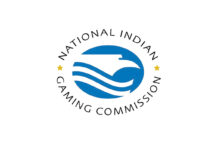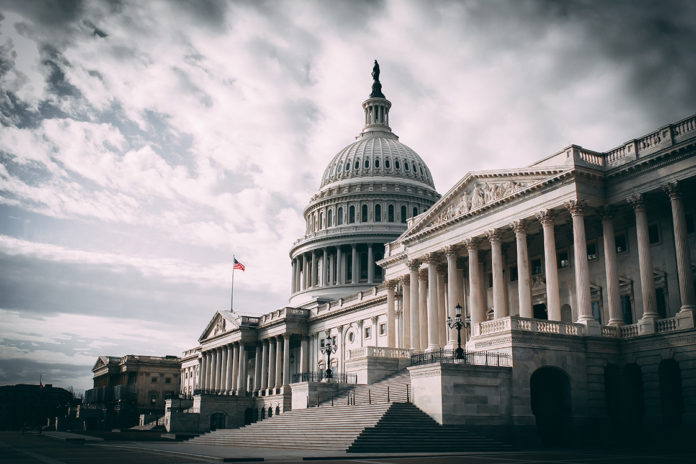WASHINGTON, D.C. – A bipartisan appropriations deal will increase funding for Native communities. The bill includes critical funding that will provide budgetary certainty through the end of the 2022 fiscal year for essential programs serving tribes and Native communities. It also contains important policy provisions, including a Violence Against Women Act reauthorization with a tribal title based on a discussion draft the committee released in December, an update to the Department of Energy’s Tribal Energy Loan Guarantee Program, and a bill to protect Indian tribes and their members from deceptive business practices and scams. The bill passed the Senate and now heads to the President’s desk to be signed into law.
“[This] bipartisan deal authorizes critical Indian Affairs priorities and delivers billions in federal dollars that will directly support Native health, education, housing, and more,” said U.S. Senator Brian Schatz (D-Hawai‘i), Chairman of the Senate Committee on Indian Affairs and a senior member of the Senate Appropriations Committee. “With these new resources and strong funding, we continue our work toward fulfilling the federal government’s trust responsibility to Native communities.”
FUNDING FOR NATIVE PROGRAMS:
$6.707 billion for Native health programs at the Department of Health and Human Services (HHS)
- $6.63 billion for Indian Health Service (IHS) programs, including $2.3 billion for IHS clinical services
- $55 million for the Substance Abuse and Mental Health Services Administration’s Tribal Opioid Response grant program
- $22 million for Health Resource and Services Administration grants to the Native Hawaiian Health Care Systems
$3.65 billion for the Bureau of Indian Affairs (BIA) and Bureau of Indian Education at the Department of the Interior (DOI)
- $7 million for DOI’s Indian Boarding School Initiative to conduct a comprehensive review of the troubled legacy of federal boarding school policies
$1 billion for Native American housing programs at the Department of Housing and Urban Development
- $922 million for the Indian Housing Block Grant program
- $72.09 million for the Indian Community Development Block Grant program
- $22.3 million for the Native Hawaiian Housing Block Grant program
$86+ million to address the Missing and Murdered Indigenous Women (MMIW) Crisis and public safety needs of Native communities
- $50 million for the Department of Justice’s (DOJ’s) Office of Justice Programs assistance to Indian tribes
- $25 million for DOI’s initiative to address MMIW cases
- $5.5 million for DOJ’s Office of Violence Against Women (OVW) tribal VAWA implementation grant program
- $3 million for a DOJ initiative to support cross-designation of tribal prosecutors as Tribal Special Assistant United States Attorneys
- $1 million for DOJ – OVW to conduct analysis & research on violence against Indian women
- $1 million to support establishment of a Native Hawaiian Resource Center on Domestic Violence
- $500,000 for a national Training and Technical Assistance clearinghouse on issues relating to sexual assault of American Indian & Alaska Native women
- Five percent set-aside for Indian tribes to receive direct funding from the Crime Victims Fund
$47.5+ million for programs to support Native American languages and cultures
- $16 million for Tribal Historic Preservation Officers
- $14 million for HHS’s Administration for Native Americans Native language grant programs
- $9.37 million for the Department of Education’s (ED’s) K-12 Native American language immersion grants
- $2.3 million for Native American/Hawaiian museum services
- $1.5 million for Native Hawaiian/Alaska Native culture and arts development
- $1.5 million for DOI Native American language instruction and immersion programs for federally recognized tribes and tribal organizations
- $1.5 million for Native American Graves Protection and Repatriation Act implementation and enforcement at BIA
- $1 million for the National Bison Range
- $600,000 for a cultural resource study to protect Chaco Canyon
- $500,000+ for ED to fund establishment of a Native American Language Resource Center
$65.42+ million in tribal climate and environmental resiliency funding to help tribal communities address and prepare for the effects of climate change
- $5 million for DOI’s tribal climate adaptation grants
- $8 million for DOI’s tribal relocation grants
- $10.65 million for reclamation of abandoned mines on tribal lands
- $4.8 million for clean energy development through BIA Minerals and Mining
- $12 million for mitigation of environmental impacts of Department of Defense activities on Indian lands
- $6 million for the Indian tribes wildlife conservation grant program at DOI’s Fish and Wildlife Service
INDIAN AFFAIRS-RELATED PROVISIONS:
Violence Against Women Act (VAWA) Reauthorization
- Maintains tribal jurisdiction over crimes of dating violence, domestic violence, and violations of tribal civil protection orders first put in place by the 2013 VAWA reauthorization
- Ensures all tribes, including those in Alaska and Maine, can exercise these same important jurisdictional tools to keep their communities safe
- Provides tribes with improved access to critical VAWA implementation resources
Tribal Energy Loan Guarantee Program Update
- Opens tribal access to lower interest rates and additional available capital for energy projects
- Authorizes access to tribal energy loans backed by the Federal Financing Bank and Department of the Treasury
- Increases by 165 percent funding for Department of Energy’s Indian Energy Policy and Programs for an appropriation of $58 million
Protecting Indian Tribes From Scams Act
- Directs the Federal Trade Commission (FTC) to work with tribal authorities to study scams targeting Indian tribes and tribal members
- Requires the FTC to submit recommendations to Congress on policies to curb deceptive business practices and scams targeting Indian tribes and tribal members















































